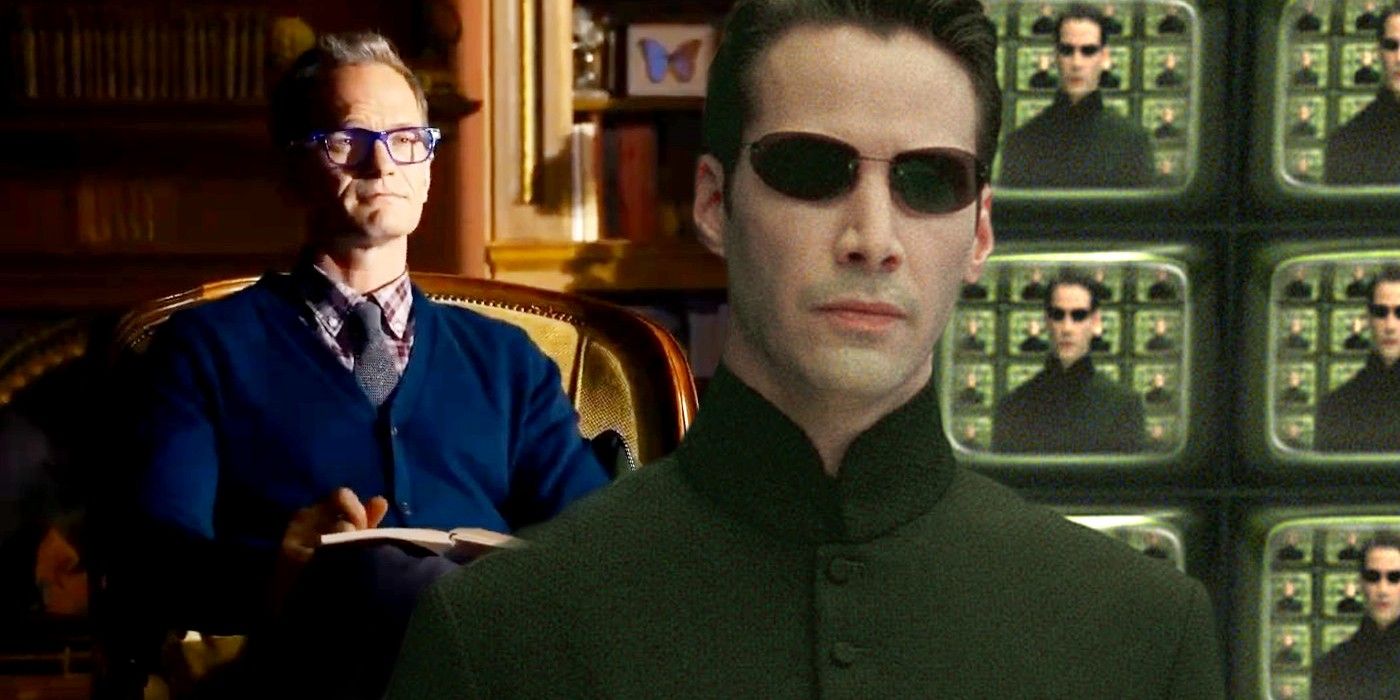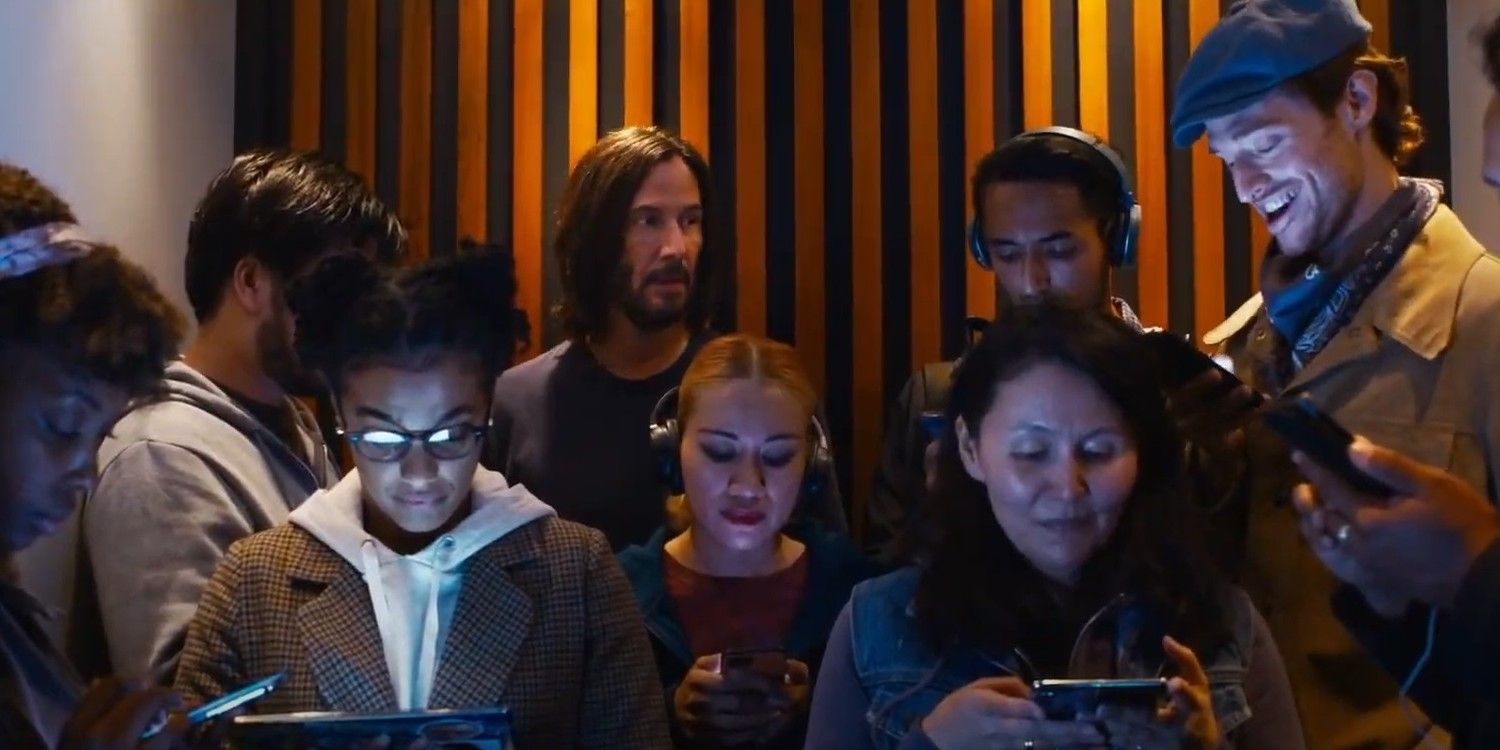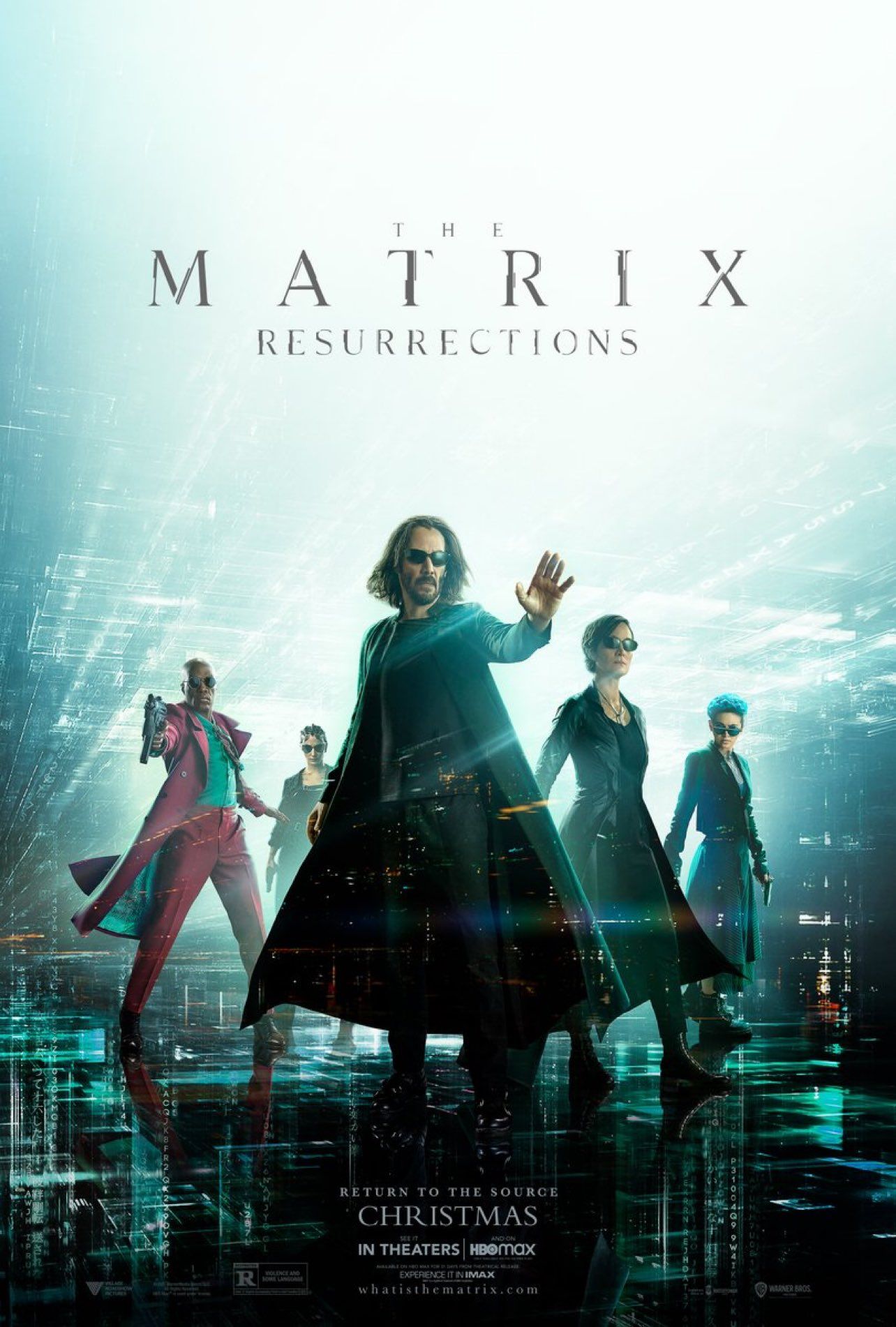The Matrix Resurrections completely overhauls the social commentary of the original trilogy, but will the modern message still have the same impact? The late 1990s/early 2000s Matrix movies are widely remembered for high-concept sci-fi storytelling, cyberpunk fashion sense, and cutlery-based metaphors. Often overlooked is how The Matrix provided an eerily finger-on-the-pulse social commentary of the era. Drawing heavily from fear of the Y2K bug (for some reason, folks in 1999 were concerned the date change could bring down civilization), The Matrix touched upon social control at a time when surveillance was increasing, and the threat of technology just as home computers were becoming the norm. The 1999 Matrix movie also served as an allegory for gender dysphoria when such issues were seldom represented in mainstream media.
Over 20 years later, those topics remain as relevant as ever, but times have changed immensely and The Matrix Resurrections takes a completely different approach to social commentary. The Matrix Resurrections trailer contains many parallels to the original movie - similar visuals, storylines, characters and concepts - but the subtext has shifted wildly.
The first indication of how The Matrix Resurrections modernizes its messaging comes from Neil Patrick Harris' character - Neo's therapist inside the Matrix simulation. He notes how Neo is "particularly triggered right now" and patronizes his client with cute stereotypical psychologist soundbites. In recent years, words like "triggered" and "snowflake" have been thrown around to belittle anyone who admits feeling offended or upset. Neo's therapist using the term is no coincidence, and hints that The Matrix Resurrections will examine the toxic nature of online social media discourse - trolling, so-called cancel culture, and dismissing those who express emotion as being oversensitive. None of this was relevant when The Matrix first released, and insulting someone online meant waiting 30 minutes for a dial-up connection first.
Neo having a therapist in The Matrix Resurrections also represents new thematic ground for the franchise. Since 1999, therapy has become far more normalized in society; partially because mental health problems are rising, partly because western society is more open about mental health problems. Neo attending therapy could tap into that discussion, reflecting how a subject more or less taboo in 1999 is now rising to the surface. In a similar vein, Neo's abuse of blue pills takes The Matrix Resurrections' social commentary toward themes of addiction and big pharma.
Another big signpost in The Matrix Resurrections' trailer comes when Neo stands awkwardly in a room where everyone else is silently staring at their phones - something of an evolution from The Matrix's previous commentary about mankind and technology. The original trilogy represented a cautionary tale, as western civilization stood on the precipice of technological revolution. Here in 2021, that ship has very much sailed. Mankind's reliance upon gadgets and software now extends way beyond anything the Wachowski sisters could've envisioned in the 1990s. The trailer scene where Neo faces a wall of glowing smartphones confirms The Matrix Resurrections will acknowledge these changing times, and face up to how, if a Machine apocalypse were possible, we're well on our way there.
The evolution in social commentary between The Matrix and The Matrix Resurrections is massive, and promises a very different experience compared to before. Moving onto modern culture wars and social media, it's also inevitable that The Matrix Resurrections will court a more divisive reaction - probably by design. But in order to avoid feeling dated and retain the cutting edge that made The Matrix so revolutionary, The Matrix Resurrections had no choice but to adopt a fresh social outlook.



